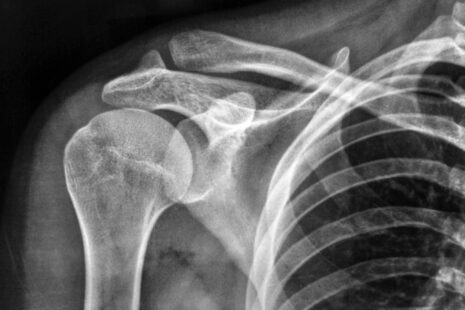A pinched nerve at the C6-C7 level refers to compression or irritation of the nerve roots exiting the spinal cord in the neck region, specifically the sixth and seventh cervical vertebrae. This condition is also known as Cervical Radiculopathy.
The symptoms of a pinched nerve at the C6-C7 level can vary, but they often include:
- Neck Pain: Pain is a common symptom, typically felt on one side of the neck. The pain may be sharp, burning, or radiating down the arm.
- Shoulder Pain: Pain may extend into the shoulder on the affected side, and it can sometimes be mistaken for shoulder joint pain.
- Arm Pain: The most characteristic symptom of the C6-C7 pinched nerve is pain that radiates down the back of the arm, often reaching the forearm, thumb, and index finger. This pain follows the pathway of the affected nerve.
- Numbness and Tingling: There may be a feeling of numbness or tingling in the shoulder, arm, or fingers. The sensations are usually experienced along the same nerve pathway as the pain.
- Weakness: Muscle weakness may be present in the muscles supplied by the affected nerve. This can lead to difficulty with gripping objects or weakness in the arm.
- Reflex Changes: Deep tendon reflexes, such as the biceps reflex (C6) and triceps reflex (C7), may be altered or diminished on the affected side.
- Aggravation with Movement: Certain neck movements, such as bending backward or to the affected side, may worsen the pain and symptoms.
The symptoms of a pinched nerve at the C6-C7 level can vary from person to person, and the severity of symptoms can also fluctuate. Sometimes, the symptoms may improve or resolve with rest and conservative treatments, such as physical therapy and medication. Further evaluation and medical intervention may be necessary in more severe or persistent cases.
If you experience persistent or worsening neck, shoulder, or arm pain, numbness, tingling, or weakness, you must seek evaluation from a healthcare professional. They can perform a thorough examination, including diagnostic tests like imaging studies, to determine the underlying cause of your symptoms and recommend appropriate treatment options. Early diagnosis and management can lead to better outcomes and prevent further complications.




